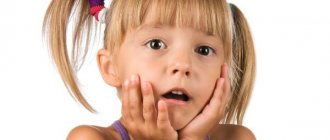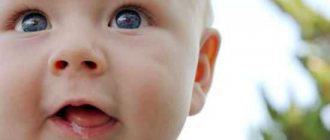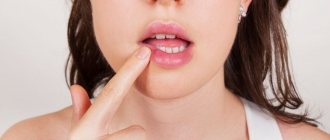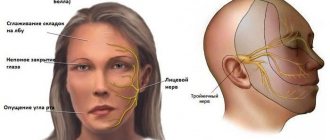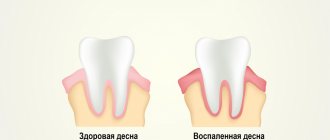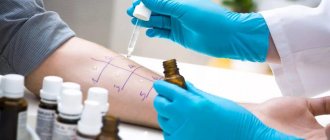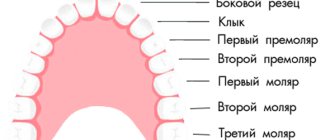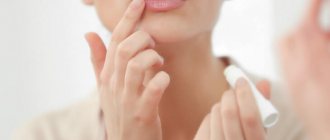- Published by: Laima Jansons
Facial tics can affect different muscle groups, including the lip muscles. The phenomenon of lips twitching is unpleasant and noticeable to others. It signals problems in the body, so twitching facial muscles cannot be ignored. Stressful situations, fatigue and overexertion lead to the appearance of false diseases. For a long time, our body tries to resist, but then, if adequate measures are not taken, this will result in mental disorders.
Most common reasons
Why does my upper lip twitch? The most common reasons:
- Most often this is a manifestation of nervousness. Facial tics occur due to disturbances in the conduction of nerve impulses. Often patients have a question: “Why does the upper lip twitch in the middle and what to do in such a situation?” First of all, you should consult a neurologist. He will make an accurate diagnosis and prescribe sedatives.
- Mineral deficiency, particularly magnesium. In this case, muscle cramps in the legs and arms may also occur.
- The recovery period after surgery, after heavy blood loss. In order for the body to recover faster, you should maintain bed rest, avoid stress, and also take a good quality vitamin and mineral complex. It is also important to replenish magnesium deficiency in the body; Magne B6 is ideal for this.
- Why does the upper lip twitch after traumatic brain injury? Yes, impacts and brain injuries are another common cause of discomfort. As a rule, the reason lies in poor circulation. You should contact a neurologist - he will prescribe suitable medications, the use of which will help to quickly get rid of the problem.
You may be interested in: Herpes in a child’s mouth: how to treat, symptoms with photos
You may be interested in: Demodicosis: reviews of treatment, symptoms, causes and medications
Tremor in children
Lip tremors in infants are considered normal until three months of age. In this case, not only the upper or lower lip of the newborn may twitch, but also the chin on one side or both, the upper or lower limbs. This condition is explained by the fact that the nervous and endocrine systems are still immature. With intense expression of emotions in a baby, the adrenal glands cannot cope with large amounts of norepinephrine, and the brain cannot yet control the movements of individual parts of the body. Normally, this symptom appears with prolonged crying or excessive fatigue.
When to be concerned:
- if tremor persists after three months;
- when the child appears in a calm state;
- with trembling not only of the lips, but also of the head.
There are a number of provoking factors that directly affect the appearance of lip tremors in children, and they will not go away on their own:
- intrauterine fetal hypoxia;
- birth of a baby prematurely;
- the presence of hypertonicity of muscle tissue;
- frequent stress and emotional stress in women during pregnancy.
If this phenomenon is short-term and does not occur when the baby is in a calm state, there is no need to worry. Otherwise, it is recommended to visit a pediatric neurologist. Treatment in this case involves massage, gymnastics, and physical therapy.
Why does a child's upper lip twitch?
It would seem that children have no stress and there is no reason for the development of pathologies of the nervous system. However, doctors have a different opinion: more and more babies are being born with neurological problems. Why does a child's upper lip twitch on the left side (or right)? As a rule, this indicates that there are problems with the conduction of nerve impulses on one side or another. When making a diagnosis, the fact in which exact place the face twitches usually does not play a significant role.
Why does the upper lip twitch in teenagers? If there have been no traumatic brain injuries over the past few years, if the teenager has not undergone surgery, then most likely this is a manifestation of a common nervous tic. Below are recommendations on how to improve the condition and get rid of tic.
Causes depending on gender
The lower lip twitches (the causes of spasms of the facial muscles are determined using MRI diagnostics) in men and women with chronic fatigue syndrome.
Women
Twitching of the lower lip occurs in women who suffer from endocrine diseases.
Lower lip twitches
An imbalance of hormones leads to dysfunction of the central and peripheral nervous system, and also causes reflex spasms of the facial muscles.
Men
Nervous tics in men can be triggered by previous injuries to the facial muscles, hypothermia, or psycho-emotional stress. In workers in workshops with hazardous production, functional disorders of the facial muscles are a consequence of chronic intoxication of the body.
Facial tics and nervous tension
So, we have found the most common reason why the upper lip twitches on the left or right. Facial nervous tics almost always occur due to high nervous tension. This could be a period of passing exams, a conflict situation in the family, separation from a loved one, or the death of someone close. There are a lot of situations in our world that can cause nervous tension even in the most mentally stable person. Why does the upper lip twitch and what to do in this case if it is a facial nervous tic?
The best way out in such a situation is to abstract yourself as much as possible from the traumatic situation. Try to take time off if work is stressful. Some people often decide to quit in order to maintain a healthy psycho-emotional background. If the reason is a toxic relationship, then it is better to get out of it. If the patient is plagued by constant conflicts in the family, you should think about living separately.
Diagnosis in children
A pediatric neurologist is involved in examination and treatment. You need to contact him in the following cases:
- if the lip twitches very strongly;
- with multiple tics;
- in the presence of physical discomfort due to a nervous tic;
- in case of violations of social adaptation against the background of a similar condition;
- if this condition has been present for more than one month.
At the appointment, the doctor collects anamnestic data, collects information about when the problem appeared, what preceded such a symptom, whether there are injuries or diseases, whether anyone in the family has a similar condition.
In addition to conducting an external examination, the specialist prescribes instrumental and laboratory diagnostic measures: a general blood test, ionogram, test for helminthiasis, magnetic resonance imaging, electroencephalography.
Which doctor should I contact?
Often, patients are so worried about a nervous tic that they search on forums for an answer to the question: “Why does the upper lip twitch in the middle, what medications to take and how to get rid of it?” The first rule is not to panic and under no circumstances self-medicate. Really powerful sedatives are available by prescription.
If the problem has become acute, you should contact a neurologist and describe the symptoms in detail. Perhaps the facial tic is accompanied by leg or arm cramps, or a frequent headache? You should definitely inform your doctor about this. The more detailed the story, the easier it will be for the doctor to draw up a clinical picture and select medications that will quickly help solve the problem.
When lip trembling is a dangerous sign
Many quite healthy people's hands shake and their lips tremble due to excitement. Trembling appears after a sleepless night. There is no need to be nervous about this - proper sleep and sedatives will bring the nervous system into normal tone.
But it happens that trembling lips and other tics are a dangerous sign of a serious illness.
Let's consider situations when a doctor's consultation is urgently needed:
- High blood pressure, pronounced pulsation of the carotid arteries, the left or right side of the face begins to go numb, the lips and chin tremble, the mouth is distorted - symptoms that require urgent treatment. During a conversation, a person expresses himself unintelligibly and incomprehensibly. The clinical picture suggests a stroke. Home treatment methods will not help; urgent hospitalization in a neurosurgical hospital is required.
- Severe pain on the face , pulsation of the corners of the mouth, lips, and increased temperature mean trigeminal neuralgia. It is not recommended to start the pathological process. To avoid serious consequences, consult your doctor.
- In some cases, a nervous tic is a mask for psychiatric diseases (schizophrenia, bipolar personality disorder). Additional symptoms are inappropriate behavior, switching from one topic to another in the middle of a conversation, obsessive thoughts, ideas.
- of the orbicularis oris muscle occurs as a result of inflammation.
If lip tremor is accompanied by the listed manifestations, then you should not delay - you need to go to the clinic.
Groups of medications used for tics
So, we found out why the upper lip twitches. What drugs are commonly used to get rid of this unpleasant problem?
Homeopathic treatment
The cause of the disease is in the human brain and psyche. Homeopathy helps eliminate unpleasant manifestations and prevent negative consequences.
What medications are prescribed for twitching lip syndrome:
- Cicuta virosa , the drug is prescribed for the treatment of meningitis, convulsive diseases and convulsions.
- Alumina , Helleborus, Apocynum - cure unilateral tics.
- Cocculus , Gelsemium - with twitching of the lower or upper jaw.
- Agaricus is used to treat seizures and tics.
- Argentum nitricum is effective for neurological disorders.
- Arsenicum album is prescribed for severe agitation and headaches.
- Ignatia is effective for hysteria and severe irritability.
- Nux vomica is prescribed for nervous disorders.
- Bryonia is effective for neuralgia and neuritis.
- Natrum sulfurum - for twitching facial muscles.
Taking antidepressants: justified or not?
The minimum duration of a course of antidepressants is three months. Many patients are forced to take this type of medication for years, as negative symptoms return after discontinuation. However, often it is antidepressants that help a person live a full life, forget about anxiety, fears, panic attacks, and facial tics.
The most popular prescription antidepressants today are:
Often a mild tranquilizer is also prescribed in parallel - for example, Atarax. This scheme helps to quickly reduce the patient’s psycho-emotional stress.
Mild sedatives
Often, to get rid of facial tics, neurologists prescribe the following sedatives:
- "Novopassit";
- "Travisil";
- "Afobazole";
- "Berocca".
The average duration of treatment is about two months. Some patients note that facial nervous tics disappear within the first week of treatment.
Facial nerve neurosis
Neuritis (neurosis N. Facialis) or Bell's palsy occurs due to inflammation of the nerve fiber. Reasons leading to this condition:
- pinched nerve as a result of narrowing of the channel through which it passes. This may be a congenital phenomenon or result from inflammation;
- hypothermia;
- other diseases and infections: herpes, mumps, otitis media, stroke, cancer, central nervous system infections;
- injury N. Facialis.
The onset of the disease is usually gradual. Manifested by pain in the behind-the-ear area. After a couple of days, neurological facial symptoms appear:
- smoothing of the nasolabial fold, drooping of the corner of the mouth;
- the face becomes asymmetrical with a skew towards the healthy side;
- eyelids do not droop. When you try to do this, your eye rolls;
- any attempt to show at least some emotion ends in failure, since the patient cannot move his lips, smile, or manipulate his eyebrows. Such manifestations can worsen to the point of paresis and paralysis of the facial muscles, that is, to partial or complete immobility of the affected part of the face;
- taste sensitivity decreases, salivation appears;
- the eyes are dry, but there is lacrimation when eating;
- hearing on the affected side worsens.
The severity of pathological symptoms depends on the degree and area of damage to the nerve fiber. If the disease is treated inadequately, complications may arise in the form of muscle contractures (immobility).
Since the disease is inflammatory in nature, its treatment is aimed at eliminating it. For this, the patient is prescribed hormonal anti-inflammatory drugs - glucocorticoids, as well as decongestants.
Other methods include:
- prescription of vasodilators and analgesics, B vitamins;
- anticholinesterase agents to increase nerve conduction;
- drugs that improve metabolism in nervous tissue;
- physiotherapy;
- massage, exercise therapy in the recovery stage.
And only in extreme cases, when conservative therapy is ineffective, neurosurgical intervention is resorted to.
Herbal sedative for nervous tics
Herbal tea "Fitosedan" is a tea made from natural herbs - valerian, motherwort, hops. Normalizes sleep and has a mild calming effect. If the facial tic is not clearly expressed and only bothers you during periods of stress, then you can get by with taking Phytosedan.
The product can be purchased at any pharmacy; you do not need a prescription from a doctor. The duration of treatment is about one month. “Phytosedan” does not cause drug dependence; you can stop taking it at any time without fear that it will negatively affect your psychological or physical state.
What can you do at home?
If your lip or tip of your mouth twitches, you can perform a self-massage - massage your forehead, temples, wings of the nose, earlobes, and neck. Relax, relax, or take an aromatic bath. Drink tea from lemon balm, mint, thyme and motherwort. If this condition occurs in a child, it is recommended to take the following measures:
- distract the child (but not with a computer or TV);
- do not focus the baby’s attention on this symptom;
- protect from stress;
- establish proper sleep;
- visit a doctor.
Prevention of facial nervous tics
Even if you managed to get rid of a nervous tic, there is a high probability that the problems will return in the next stressful situation. How to keep your nervous system calm and prevent the problem from returning?
Source
Problem prevention and prognosis
To prevent lips from starting to twitch, there are certain preventive measures: ensure proper rest, learn to cope with stress, improve nutrition, walk in the fresh air, ventilate the room. If your muscles are twitching, you can perfectly relax with the help of an aroma bath or massage.
It is recommended to limit watching TV and being in front of a computer screen, especially before bed. Do not eat protein foods at night. The recommendations listed apply to both adults and children. Moreover, for children, being in front of a computer and TV should be strictly regulated, depending on their age category. Also, do not ignore any alarming symptoms. It is better to visit a doctor and rule out possible dangerous diseases. Most often, the doctor does not even resort to prescribing medications. A course of multivitamins, relaxing massage, physiotherapeutic procedures, and psychotherapy is sufficient.
Chief author and editor-in-chief: Makarskaya S.E., 29 years of experience.
Last revision: 03/18/2018
